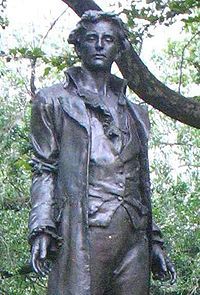Ex-FBI lawyer linked to surveillance abuses poised for federal judge post
Spencer Ackerman, The Guardian
Friday 6 September 2013 10.08 EDT
A former senior FBI official implicated in surveillance abuses is poised to become a federal judge in one of the US’s most important courts for terrorism cases.
…
Caproni has come under bipartisan criticism over the years for enabling widespread surveillance later found to be inappropriate or illegal. During her tenure as the FBI’s general counsel, she clashed with Congress and even the Fisa surveillance court over the proper scope of the FBI’s surveillance powers.
…
A 2010 report by the Department of Justice’s internal watchdog found that the FBI misused a type of non-judicial subpoena known as an “exigent letter” to improperly obtain more than 5,500 phone numbers of Americans.“The FBI broke the law on telephone records privacy and the general counsel’s office, headed by Valerie Caproni, sanctioned it and must face consequences,” said John Conyers, then the chairman of the House judiciary committee, in April 2010, who called for then-FBI director Robert Mueller to fire her.
…
In an April 2008 House hearing, Caproni told lawmakers that if a phone number obtained from a telephone company using a nonjudicial subpoena ostensibly authorized by the Patriot Act was unrelated to a “currently open investigation, and there was no emergency at the time we received the records, the records are removed from our files and destroyed”.In fact, the NSA, at the time of Caproni’s testimony and today, stores phone records such as phone numbers on practically all Americans for up to five years, whether or not they are connected to an “open investigation”.
Numerous intelligence, Justice Department and law enforcement officials have testified this summer that the NSA can pass phone records to the FBI that it has “reasonable articulable suspicion” are connected to terrorism, although NSA deputy director John C Inglis could not cite a single case where the phone records have clearly disrupted a domestic terror attack.
“Caproni knew that the Bush administration could use or was using the Section 215 provision in the Patriot Act to obtain Americans’ phone records on a broad scale, an issue that has recently been documented by the whistleblower material first printed in the Guardian,” said Graves, a former deputy assistant attorney general who dealt with Caproni extensively while working on national security issues for the ACLU.
…
A 2008 Justice Department inspector general’s report into surveillance under the Patriot Act found that Caproni clashed with the Fisa court, a secret court that oversees surveillance for the purposes of foreign intelligence, over the scope of the court’s authority.The heavily redacted report found that in 2006, the Fisa court indicated it would not sign off on an FBI request for business records under section 215 of the Patriot Act – the section used to justify the bulk phone-records database – “because of first amendment concerns.” It is extremely rare for the Fisa court to deny the government a surveillance request.
Caproni, the FBI’s general counsel at the time, “told the OIG [office of inspector general] that the Fisa court does not have the authority to close an FBI investigation,” according to a footnote in the report.

 On this day in 1776, General George Washington asks for a volunteer for an extremely dangerous mission: to gather intelligence behind enemy lines before the coming Battle of Harlem Heights. Captain Nathan Hale of the 19th Regiment of the Continental Army stepped forward and subsequently become one of the first known American spies of the Revolutionary War.
On this day in 1776, General George Washington asks for a volunteer for an extremely dangerous mission: to gather intelligence behind enemy lines before the coming Battle of Harlem Heights. Captain Nathan Hale of the 19th Regiment of the Continental Army stepped forward and subsequently become one of the first known American spies of the Revolutionary War.
